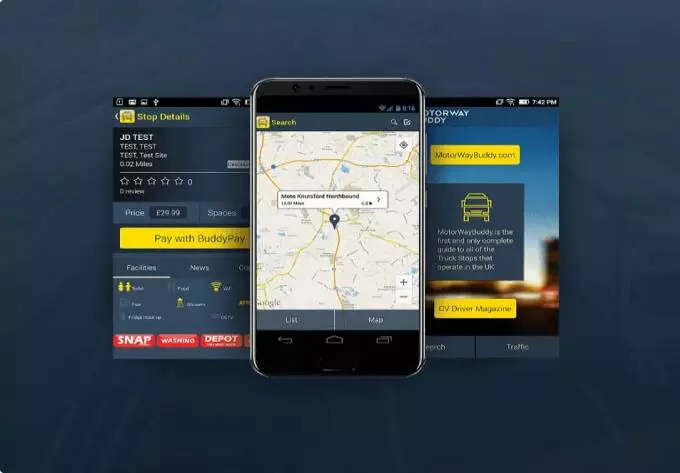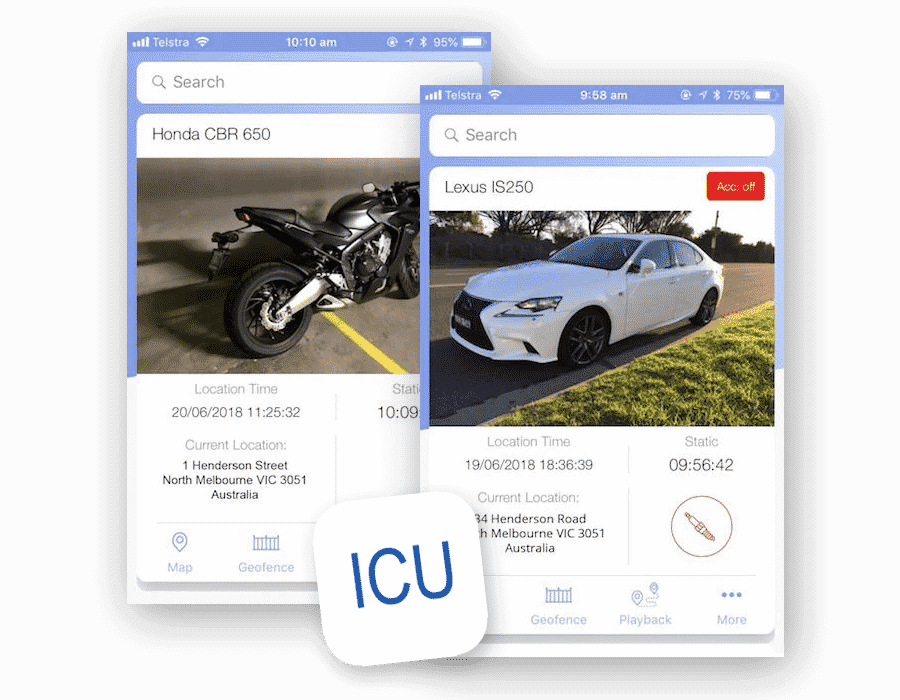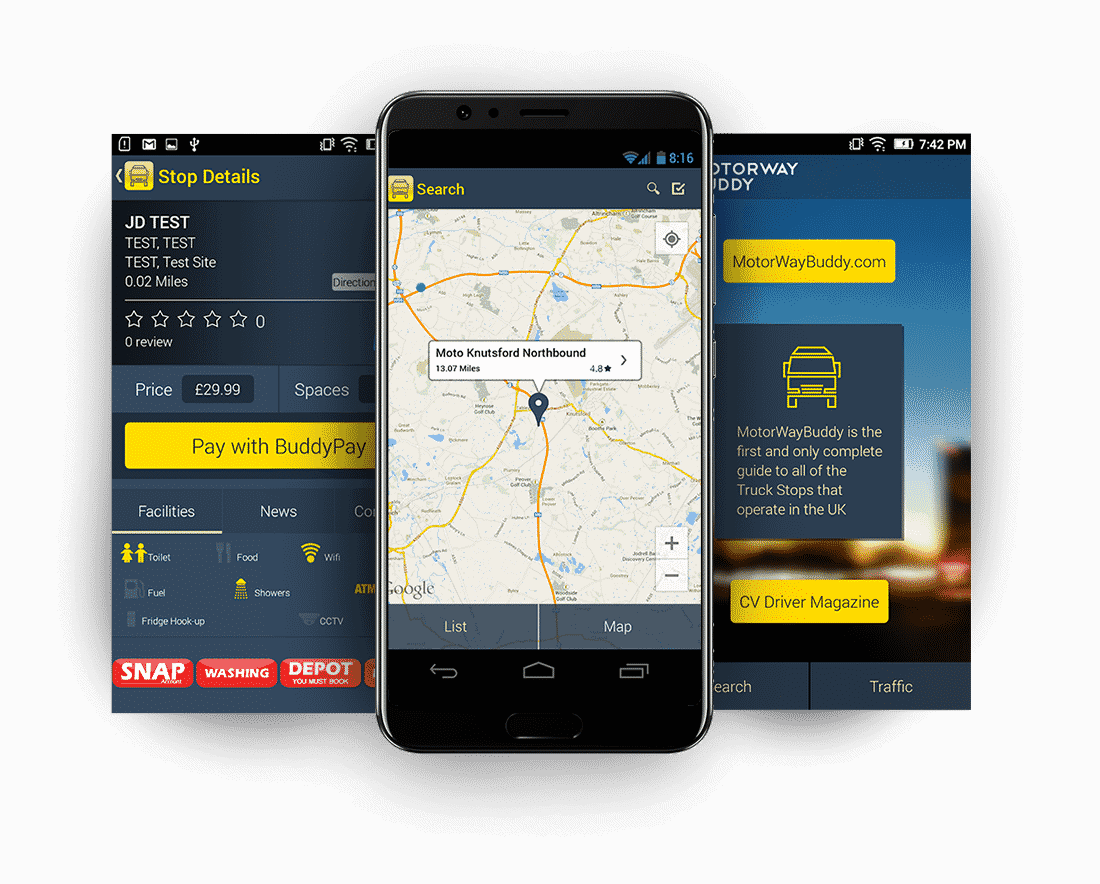
Automobile Industry Solutions Custom Auto Industry Solutions Industry 4.0 Manufacturing Solution Proven Automotive Industry Solutions using AI, IOT and Blockchain
Request Free ConsultationCustom Car, Auto, EV Industry Services & IT Solutions
CIS is a reliable automobile IT solutions provider company where you will find next-gen technology solutions for Custom Car, Auto, and EV Industry Services & IT Solutions to combat common industrial challenges. The Automobile Industry has always been a step ahead of the world in adopting technology. If you are one of the brilliant leaders on the run, make no exception and partner with CIS to get in-line service augmenting IT solutions at affordable operational costs.
Sustainable Manufacturing Solutions Powered By IT
Get enhanced performance, risks, and prized direct interaction with your end users. We provide Sustainable Manufacturing Solutions powered by IT that turn the table around and get you the automated processes to make the entire management process cost-effective.
Custom IOT, BI, AI, Blockchain SAP Solutions
The automotive industry is one of the most important industries in the world. It is responsible for the production of vehicles that are used by people all over the globe. Automotive IT solutions have seen a lot of changes in recent years. It has been forced to adapt to new technologies and trends. One of the automotive industry's biggest changes is the introduction of SAP solutions.
SAP is a software company that provides enterprise software solutions to businesses worldwide. The company has been operating for over 40 years and has a very strong presence in the automotive industry. SAP provides a wide range of solutions to businesses in the automotive industry, including vehicle manufacturing, aftermarket parts and accessories, dealership management, customer relationship management (CRM), and supply chain management (SCM).
Introducing SAP solutions into the automotive industry has profoundly impacted how businesses operate. Vehicle manufacturers have been able to use SAP solutions to streamline their operations and become more efficient. Aftermarket parts and accessories companies have also benefited from using SAP solutions; they have been able to reduce inventory levels and increase sales. Dealership management companies have used SAP solutions to improve customer service and increase profits. And finally, CRM and SCM providers have used SAP solutions to enhance communication between different departments within an organization and between various organizations within the supply chain.
Hire an automobile app development company to make Custom IOT, BI, AI, Blockchain, and SAP Solutions that can make your automobile business a step ahead of the rest of the industry. Find a myriad of management solutions, including dealer management systems, fleet management solutions, shipping & delivery systems, logistics on demand, and more, just at CIS.
How Can Your Automotive Industry Be Improved Using AI?
The automotive industry is one of the most important industries in the world. It is responsible for producing cars, trucks, and other vehicles used by people all over the globe. The industry employs millions of people and generates billions of dollars annually.
The automotive industry can be improved using AI in several ways. First, AI can be used to enhance the design of cars. By using AI to create 3D models of vehicles, designers can explore a wider range of possibilities and develop more aerodynamic and efficient methods. This can lead to cars that use less fuel and emit fewer greenhouse gasses.
Second, AI can be used to improve manufacturing processes. By using robots equipped with sensors and artificial intelligence, factories can become more efficient and produce higher-quality products. This could lead to lower prices for consumers and increased profits for manufacturers.
Third, AI can be used to improve safety features in cars. For example, autonomous vehicles that use AI to sense their surroundings could prevent accidents by reacting faster than human drivers. Additionally, AI-powered systems could monitor driver behavior and provide warnings or take corrective action if necessary.
Fourth, AI can be used to help sell cars. By analyzing data about customer preferences, dealerships could stock their inventory with the vehicles most likely to sell quickly. Additionally, marketing campaigns could be targeted specifically at potential customers who are likely to be interested in purchasing a particular type or make of car.
Challenges And Opportunities
Biggest Challenge Facing The Auto Industry
The auto industry's biggest challenge is keeping up with changing consumer demands. In recent years, there has been a shift from traditional sedans to smaller, more fuel-efficient vehicles. This has put pressure on manufacturers to produce more efficient cars while maintaining the same quality and performance level consumers expect. Additionally, the rise of electric vehicles has created another market segment in which manufacturers must compete. To keep up with these trends, automakers have had to invest significantly in research and development and manufacturing facilities. These challenges will likely continue in the coming years as consumer preferences evolve.
New IT Innovations For The Automotive Industry
The automotive industry is constantly evolving, with new technologies and innovations being introduced regularly. Some of the latest IT innovations in the automotive industry include:
- Connected Vehicle Technological advances, vehicles can now: connect and share data. This allows for a safer driving experience as well as enhanced traffic management.
- Electric Vehicles: Electric vehicles are becoming more popular due to their environmentally friendly nature. Many carmakers are now investing in this technology, and several electric cars are available in the market today.
- Self-Driving Cars: Self-driving cars are another major innovation in the automotive industry. These cars use sensors and cameras to navigate themselves without any input from the driver. Several companies are working on this technology, which is expected to be commercially available shortly.
Legacy Application Modernization Areas
-

Traditional Tools Dependency
It is now time to disown the un-resulting traditional tools and equipment. There is no way old and poor technologies will take any business far. The current technologies are highly prone to mistakes and, thus, to losses.
-

Regulation Acceptance
The industry still needs to reach its full potential. Heavy rules and regulations by government agencies have created a barrier to digitalization.
-

Market Competition
It's a highly competitive industry, and the marketplace is flooded with individual businesses working at low prices and reduced prices overall, breaking down the price points.
-

Isolated Groups
The decision-making process is complex, and isolated groups and remote assemblies complicate it further.
-

Lack of technology adoption
The top players are bombarding the market except for technology-inclusive solutions such as self-driving cars, AI-enabled cars, better GPS integration, and others while raising the bar for smaller fishes to follow.
-

Global Expansion
The industry is present worldwide, so this expects you to push your boundaries and tap new marketplaces for a global presence and higher income generation.
-

Technology Implementation
The challenge is getting past the traditional methods; once the technology is implemented, it will only make the processes more streamlined, and results will follow.
-

Easy to take down the competition
Since few use technology in their operations or customer-business interaction, the inclusion of technology can put you a lot ahead of the competition.
-

The Cost Factor
Cost is meteorically reduced with automobile web portals, mobile applications, and software technology. It helps you greatly find a way to cut down the hefty price of online services.
Automobile Application Development Services - CIS
Custom Solutions For Managing Technology Innovations In The Automotive Industry
The IT solutions for the automotive industry are constantly evolving as new technologies are developed and implemented. Here are the latest trends in automotive technology:
1- Electric Vehicles
Electric vehicles (EVs) are becoming increasingly popular thanks to their environmental friendliness and low running costs. Several major automakers have committed to investing heavily in EVs, and it is expected that they will make up a significant proportion of new car sales in the coming years.
2- Connected Cars
With the advent of high-speed Internet connectivity, cars are becoming increasingly connected. This allows for various features like real-time traffic information, remote diagnostics, and infotainment systems. Automobile app Developers are also making autonomous or self-driving cars, which could revolutionize transportation.
3- Alternative Fuels
As concern over climate change grows, there is an increasing focus on finding alternative fuels for vehicles. Electric cars are one option, but others include hydrogen fuel cells and biofuels made from plant matter. These alternative fuels offer the potential to reduce emissions from transportation significantly.
4- Advanced Materials
Automakers are always looking for ways to improve the performance and efficiency of their vehicles. One recent development area has been using advanced materials such as carbon fiber and aluminum instead of steel in vehicle construction. These materials can help reduce weight without sacrificing strength, improving fuel economy.
Our Next-gen Custom Solutions for You
-


Dealer Management Systems
A dealer management system (DMS) is a software package that enables a company or individual who sells, services, and finances vehicles to manage inventory, customers, sales and marketing campaigns, accounting, and other data.
A DMS typically includes a customer relationship management (CRM) component for managing customer interactions; an inventory management module for tracking vehicle stock levels, pricing information, and sales data; and reporting capabilities. Some systems also integrate with third-party software such as enterprise resource planning (ERP) applications.
DMS products vary in terms of the features they offer and the industries they serve. However, all DMS solutions share some common functionality:
Inventory management: A DMS helps businesses keep track of their vehicle inventory levels. It can provide real-time visibility into stock availability across multiple locations, help set pricing based on market conditions and historical data, track vehicle condition and mileage information, generate reports on sales trends, and more.
Customer relationship management (CRM): CRM capabilities are designed to help businesses manage their customer relationships effectively. A DMS can store contact information, interaction history details (such as phone calls made or emails sent), task lists associated with specific customers or deals in progress ,and notes about each interaction. This information can be used to follow up with customers after a sale or service visit ,target them with marketing campaigns based on their preferences or purchase history ,and measure the success of individual salespeople or teams.
Sales force automation: A DMS can automate many of the tasks involved in selling vehicles ,including generating quotes ,creating contracts ,and processing payments . This can help streamline the sales process and free up staff members to focus on other tasks.
Financial reporting : Automated financial reporting is one of the most important benefits of using a DMS . The system can generate detailed reports on income statement s balance sheets cash flow statements accounts receivable aging reports tax liability reports unit cost analysis reports gross margin reports dealership profitability analysisreports And much more . These reports give dealership managers critical insights into every aspect of their business operations so they can make informed decisions about where to allocate resources .
Marketing campaign management: Many dealer management systems include tools for creating targeted marketing campaigns based on customer segmentation criteria such as demographics location purchasing behavior past interactions with the dealership And so forth These campaigns can be deployed across multiple channels including email direct mail social media paid search And display advertising
-


Fleet Management Systems
Keep a close record on your fleet and track your vehicles effortlessly allowing you to enjoy the ease of the easy management and total control over your business.
A fleet management system (FMS) is a telematics-based system that is used to monitor and track vehicles. A typical FMS will use GPS technology to track the location of vehicles, as well as other data such as speed, fuel level, mileage, and more. This information can be used by fleet managers to improve the efficiency of their operations, as well as to improve safety and reduce costs. There are a number of different features that can be found in a fleet management system.
One of the most common is vehicle tracking, which allows managers to see the real-time location of their vehicles. This can be used for a variety of purposes, such as Dispatching - Vehicles can be dispatched more efficiently if fleet managers know where they are located.
Route Planning - Fleet managers can use tracking data to plan more efficient routes for their vehicles. This can save both time and money by reducing fuel consumption and wear and tear on vehicles.
Safety - Tracking data can be used to identify unsafe driving habits, such as speeding or sudden braking. This information can then be used to provide training or coaching to drivers so that they can improve their safety record.
Another common feature found in many fleet management systems is driver behavior monitoring. This allows managers to see how drivers are using their vehicles, including things like acceleration rates and braking patterns. This information can then be usedto identify issues with individual drivers so that corrective action can be taken; to assess whether changes need to be made to company policies or procedures; or simply for performance evaluations.
In addition to tracking data and driver behavior monitoring, some fleet management systems also offer additional features such as maintenance scheduling and asset tracking . Maintenance scheduling helps ensure that vehicles are properly maintained according to manufacturer recommendations , which can help extend the life of the vehicle and avoid costly repairs .
-


Shipping & Delivery System
A smoother shipping and delivery process on the go only to make you more efficient. With real-time courier tracking and comprehensive access to various information anytime and anywhere.
An effective shipping and delivery IT system can save your business time and money while improving customer satisfaction. The right solution will automate the process of shipping orders from your company to customers, whether they are down the street or across the globe. Here are some key features to look for when choosing a shipping and delivery IT system:
Automated order management: The system should automatically generate packing slips, labels, and other required documents based on information entered by you or your staff. This eliminates the need for manual data entry, which can lead to errors. In addition, automated order management can help you keep track of inventory levels and reorder items as needed.
Real-time tracking: A good shipping and delivery IT system will provide real-time tracking information so you always know where your packages are. This is especially important if you ship internationally, as it can help avoid potential delays or problems with customs clearance. Real-time tracking also allows you to provide your customers with up-to-date information on the status of their orders.
Flexible packaging options: The best shipping and delivery IT systems offer a variety of packaging options to choose from, including envelopes, boxes, pallets, and more. This gives you the flexibility to ship products of all sizes securely and efficiently. In addition, some systems allow you to create custom packaging solutions that meet the specific needs of your business.
Integrated payments: An integrated payment gateway allows customers to pay for their orders using their preferred method - credit card, PayPal, bank transfer, etc. - without leaving your website or app. This not only makes life easier for your customers but also reduces the chances of abandoned carts due to complex checkout processes. In addition, an integrated payment gateway can help streamline your accounting procedures by automatically recording payments in your financial software
-


Logistic & Inventory Solutions
A dependable logistic and inventory management solution that comes with custom-designed abilities to meet your unique requirements.
The ever-changing and dynamic business landscape has necessitated the need for organizations to have robust and efficient IT solutions in place to manage their logistics and inventory. The following are some key features of such IT solutions:
1. Real-time tracking of inventory: A good logistics and inventory IT solution will offer real-time tracking of inventory levels across all warehouses/locations. This is important for effective decision making with regards to stocking levels, procurement, etc.
2. Efficient order management: The system should be able to efficiently manage orders from placement to delivery. This includes features such as automated order processing, tracking of shipment status, etc.
3. Integration with other systems: A good logistics and inventory IT solution should be able to seamlessly integrate with other business critical systems such as accounting, CRM, ERP, etc. This ensures that all departments have access to accurate and up-to-date information for effective decision making.
4. Flexibility: The system should be flexible enough to accommodate the changing needs of the organization over time. For instance, it should allow for easy expansion into new locations or addition of new warehouses without any major disruptions.
5 . Robust reporting: The system should offer a variety of reports which can provide valuable insights into various aspects of the business such as stock levels, sales trends, customer preferences, etc
-


Supply Chain Management
An easy to use and comprehensive supply chain management solution that manages your production, demands and supply while providing your analytics that you need to respond.
An IT system for supply chain management (SCM) is a platform that enables organizations to plan, execute and monitor their supply chain operations. It allows end-to-end visibility of the entire process, from raw materials procurement to finished product delivery. In addition, it provides real-time data and analytics to help organizations make better decisions and optimize their processes. Some of the key features of an IT system for SCM are:
1. Planning and execution: The system should allow users to plan and execute their supply chain operations in a coordinated manner. It should provide tools for creating schedules, assigning tasks and monitoring progress. In addition, it should enable communication and collaboration between different stakeholders involved in the process.
2. Monitoring and control: The system should provide users with visibility into all aspects of the supply chain, from raw materials procurement to finished product delivery. It should also allow them to track individual shipments and view detailed performance metrics such as on-time delivery rates and order fill rates. In addition, the system should enable users to set up alerts so they can be notified about potential problems or delays in the process.
3. Analytics and reporting: The system should provide users with access to powerful analytical tools so they can gain insights into their supply chain operations. It should also allow them to generate reports that can be shared with other stakeholders involved in the process.
-


Data Warehousing Solutions
CIS gives you efficient data warehousing solutions that allow you manage and protect your data while also using it for getting important insight.
Data warehousing solutions have become an important part of many organizations' information management strategies. A data warehouse is a repository of integrated information that can be used to support decision making in an organization. Data warehouses are usually created by extracting data from multiple operational databases and then integrating the data into a single database. The data in a data warehouse is typically organized around business dimensions, such as customer, product, or time.
There are many different features that IT systems for data warehousing solutions may offer. Some of the most common features include:
1. Data extraction: This feature allows users to extract data from operational databases and load it into the data warehouse. Data extraction can be done manually or automatically using ETL (extract, transform, and load) tools.
2. Data transformation: This feature allows users to transform the extracted data into a format that is compatible with the data warehouse schema. Data transformation can be done manually or automatically using ETL tools.
3. Data loading: This feature allows users to load the transformed data into the data warehouse tables. Data loading can be done manually or automatically using ETL tools.
4. Reporting and analysis: This feature allows users to generate reports and perform analysis on the data in thedata warehouse . Reports and analysis can be generated using SQL queries or OLAP (online analytical processing) tools.
-


Manufacturing Solutions
Be it web, mobile or software solutions, find an excellent developer team to meet your needs of automobile manufacturing units and adapt to digitalization.
The role of Information Technology in manufacturing is growing at a rapid pace. Many manufacturers are now looking to IT solutions to help them streamline their operations and become more efficient. There are a number of different features that an IT system can provide for manufacturing, which can vary depending on the specific needs of the company. However, there are some common features that most systems will offer.
One of the most important features of an IT system for manufacturing is the ability to track inventory levels. This is essential for keeping production moving smoothly and avoiding disruptions due to shortages. An effective inventory tracking system will be able to automatically reorder items when they reach a certain level, so that production can continue without interruption.
Another key feature of an IT system for manufacturing is the ability to schedule and monitor production schedules. This ensures that all products are made on time and prevents delays in the delivery of finished goods to customers. A good scheduling system will also allow manufacturers to track progress on individual orders, so that any issues can be quickly identified and rectified.
Quality control is another vital aspect of manufacturing, and an effective IT solution will help companies to monitor and improve their processes. Quality control systems can automate many aspects of quality assurance, including testing products before they leave the factory floor. This helps to identify any potential problems early on, so that they can be fixed before they cause delays or defects in the final product. In addition, quality control systems can provide data analysis capabilities that help managers identify trends and areas where improvements need to be made.
Finally, security is an increasingly important concern for manufacturers as they look to protect their intellectual property and confidential information from cyber-attacks . A comprehensive IT security solution will help companies safeguard their networks and data against unauthorized access and malicious software . In addition , it Can also provide employees with secure access to company resources from remote locations . This Is especially important for companies with supply chain or customer facing operations , as it allows them To keep critical business functions running even if their main office suffers an outage .
-


Logistic on Demand
While your competition dwells on old, get a power-packed technology-driven solution where your users can easily book your service, track their orders while you can easily manage everything on the backend.
An IT system for logistics on demand is a software application that enables businesses to manage and automate their supply chain and transportation operations. The system provides a centralized platform for managing all aspects of the supply chain, from planning and execution to tracking and visibility. It helps businesses optimize their resources, reduce costs, and improve customer service.
The following are some of the key features of an IT system for logistics on demand:
-Resource Planning: The system provides a complete view of all the resources required for transportation and logistics operations. This includes vehicles, drivers, warehouses, inventory, and other assets. The resource planning feature helps businesses optimize their utilization of resources and ensure efficient utilization of all available assets.
-Transportation Management: The system provides tools for managing all aspects of transportation operations. This includes route planning, vehicle dispatch, freight management, tracking & tracing, and billing & invoicing. Transportation management helps businesses optimize their shipping processes and ensure timely delivery of goods to customers.
-Warehouse Management: The system provides tools for managing warehouse operations. This includes receiving & put away, order picking & packing, inventory management, shipping & receiving, and product returns. Warehouse management helps businesses optimize their storage space and increase efficiency in their distribution operations.
-Inventory Management: The system provides tools for managing inventory levels across the supply chain. This includes stock replenishment, reordering points, lot sizing methods ,and safety stock levels . Inventory management helps businesses avoid stock outs and overstocking , thus reducing costs associated with lost sales or expedited shipping .
-Customer Relationship Management: The system provides tools for managing customer relationships . This includes customer profiles , contact information , order history , invoices & payments ,and shipment tracking . Customer relationship management helps businesses build strong relationships with customers by providing them with visibility into the status of their orders .
-


Location Tracking Solutions
It is essential that you have a track on vehicles, fleet and drivers and we give you comprehensive and mobile solutions to it, advanced IT solutions providing real-time locations of your assets.
An IT system for location tracking solutions is a software application that helps businesses to track and manage the movement of their employees, vehicles, or other assets. The solution enables organizations to monitor and optimize operations by reducing operational costs and improving efficiencies. It also allows businesses to improve customer service and compliance with regulatory requirements.
The features of an IT system for location tracking solutions vary depending on the vendor, but typically include:
-Asset Tracking: The ability to track and monitor the movement of assets in real-time. This feature can be used to monitor employee productivity, optimize fleet management, or prevent theft and loss.
-Geofencing: The ability to create virtual boundaries around specific locations. This feature can be used to trigger alerts when assets enter or leave a designated area, or to automatically record the location of an asset at certain intervals.
-Reporting and Analytics: The ability to generate reports on asset movements and activity patterns. This feature can be used to identify trends and optimize operations.
-Integrations: The ability to integrate with other business systems, such as enterprise resource planning (ERP) or customer relationship management (CRM) systems. This feature allows businesses to share data between different applications for a more holistic view of operations.
-


Industry Cloud Solutions
The automotive industry is under pressure to produce vehicles more quickly and efficiently than ever before. In response, automakers are turning to cloud-based solutions to help them design, develop and manufacture vehicles. Here are some of the ways cloud is being used in the automotive industry:
Design and Development: Cloud-based solutions are being used by automakers to speed up the design and development process. By using cloud computing, engineers can access data and applications from anywhere in the world, which makes it easier to collaborate on projects. Additionally, cloud-based solutions make it possible to simulate different designs and test how they would perform in real-world conditions.
Manufacturing: The manufacturing process is another area where cloud-based solutions are being used by automakers. By using cloud computing, manufacturers can connect different factories around the world and share data in real time. This helps them coordinate production schedules and identify bottlenecks in the manufacturing process. Additionally, cloud-based solutions can be used to monitor assembly line workers and equipment to ensure that quality standards are met.
Supply Chain Management: Automakers rely on a complex supply chain to source parts for their vehicles. Cloud-based solutions are helping them manage this supply chain more effectively. By using cloud computing, suppliers can share information about inventory levels and delivery schedules with buyers in real time. This helps both sides keep track of what's happening throughout the supply chain so that they can make necessary adjustments. Additionally, cloud-based solutions make it possible for suppliers to offer buyers visibility into their own operations so that they can select the supplier that best meets their needs.
-


Augmented Reality Solutions
The automotive industry is under pressure to adopt new technologies that can provide a better customer experience. One such technology is augmented reality (AR). AR provides a live view of the real world with virtual objects superimposed on it. This can be used to provide information about the car, its surroundings, and even the driver's current location.
There are many potential applications for AR in the automotive industry. For example, it could be used for navigation, parking assistance, or even maintenance and repair tasks. It could also be used to provide information about the car's features and options.
AR solutions for the automotive industry are still in their early stages of development. However, there are already several companies working on this technology. Some of the leading providers of AR solutions for the automotive industry include Continental AG, Robert Bosch GmbH, Delphi Automotive PLC, Valeo SA, and Denso Corporation.
Continental AG is one of the leading suppliers of electronic components and systems for vehicles. The company has been working on an AR solution called "ContiSense" since 2016. The system uses sensors to detect objects in front of the vehicle and then displays information about them on a windshield-mounted display.
Robert Bosch GmbH is another major player in the automotive industry. The company has been working on an AR-based head-up display (HUD) system called "Bosch HUD4me" since 2015. The system projects important information onto the windshield in front of the driver. This includes navigation instructions, speed limit signs, and traffic signals.
Delphi Automotive PLC is a leading supplier of electrical and electronic components for vehicles. The company has developed an AR solution called "DELPHI Connected Car Suite" which was launched in 2017. The suite includes several different modules that can be used for various purposes such as infotainment, safety & security, diagnostics & maintenance, etc
We have an expert team of AR VR developers to design custom solutions for you.
-


Service Parts Management
Service Parts Management (SPM) systems are designed to streamline the process of managing and replenishing inventory for service organizations. SPM systems typically include features such as automated ordering, kitting, and tracking of warranty information.
Automated Ordering: SPM systems can automatically generate orders based on preset criteria, such as minimum stock levels or customer demand. This can help to ensure that inventory is always available when needed, without the need for manual intervention.
Kitting: SPM systems often include features for creating kits of parts that are commonly used together. This can simplify the process of ordering and stocking inventory, as well as reducing the likelihood of errors.
Tracking Warranty Information: Many SPM systems include features for tracking warranty information for products and services. This can help to ensure that customers are properly compensated in the event of a failure, and can also help to identify patterns of failures that may indicate a manufacturing issue.
-


BI Solutions
An automotive BI solution is a business intelligence software application that helps users gain insights into the performance of their businesses. The features of an automotive BI solution vary depending on the vendor, but typically include:
- Data visualization and dashboards: Users can create visualizations of their data, including charts, graphs, and maps. Dashboards allow users to track key metrics and KPIs in real time.
- Reporting and analytics: Automotive BI solutions provide users with the ability to generate reports on their data. They also offer advanced analytics capabilities, such as predictive analytics and machine learning.
- Reporting and analytics: Automotive BI solutions provide users with the ability to generate reports on their data. They also offer advanced analytics capabilities, such as predictive analytics and machine learning.
- Self-service: Many automotive BI solutions offer self-service capabilities, which allow users to create their own reports and dashboards without having to rely on IT staff.
-


Product Lifecycle Management
In the automotive industry, product lifecycle management (PLM) is a process that helps organizations keep track of all aspects of a product as it moves through its development cycle. This includes managing data, documents, and code associated with the product.
A PLM system can help an organization manage changes to a product over its lifetime. For example, if a car company wanted to make a change to the design of one of its products, it could use PLM to track all the data associated with that change. This would include any drawings or models related to the change, as well as any test results or other documentation.
PLM can also be used to manage relationships between different parts of a product. For example, if an engine part is changed, then the transmission and other parts that interact with it must also be updated. A PLM system can help ensure that all these changes are made correctly and in coordination with each other.
Finally, PLM can also be used for cost analysis and marketing purposes. By tracking all the data associated with a product throughout its lifecycle, companies can better understand where costs are incurred and how products are being used by customers. This information can then be used to make decisions about future products
-


Manufacturing Automation
The automotive industry is one of the most complex and demanding industries in terms of Information Technology (IT) systems. The successful operation and management of an automotive manufacturing facility requires a highly sophisticated IT infrastructure that can support a wide range of activities, from product design and engineering to supply chain management and customer relations.
In recent years, there has been a growing trend towards the use of Manufacturing Automation systems in the automotive industry. These systems are designed to provide a high degree of control over the manufacturing process, allowing for greater efficiency and accuracy. In addition, they can also help to reduce costs by eliminating the need for manual labor.
There are a number of different types of Manufacturing Automation systems available on the market today. Some of the most popular include:
Product Lifecycle Management (PLM) Systems: PLM systems are designed to manage all aspects of the product lifecycle, from initial concept through to final production and delivery. They typically include features such as CAD/CAM integration, bill of materials management, change management, configuration management, quality control, and project management.
Enterprise Resource Planning (ERP) Systems: ERP systems are comprehensive business solutions that aim to cover all areas of an organization's operations, including financials, human resources, manufacturing, supply chain management, customer relationship management (CRM), and others. As such, they often come with built-in modules for specific functions or industries (such as automotive ERP software). However, many ERP vendors also offer "add-on" modules that allow organizations to customize their system according to their specific needs. Common features found in ERP systems include inventory control , order tracking , shipping & logistics , invoicing & billing , and much more .
Supply Chain Management (SCM) Systems: SCM systems are designed to streamline an organization's supply chain by providing visibility into every stage of the process - from raw materials procurement through to finished goods distribution . In addition to standard SCM functionality , many modern SCM solutions also offer advanced features such as supplier performance tracking , demand planning , inventory optimization , transportation planning & execution , warehouse management , etc .
At CIS we have a expert Army of expert developers to design, customize and implement custom Manufacturing Automation solutions for your company.
Why Choose Us?
Cyber Infrastructure, CIS, has been a leader in outsourcing solutions for clients in the automotive industry for over a decade. Our team comprises some of the best minds in the world and can assist you at any stage. We have many reasons to be your choice:
-


Expert Resources
Our team includes some of the best and most skilled people who have worked with clients in the automotive industry.
-


Cost-effective service
Our automotive industry clients receive the highest-quality services at very affordable prices.
-


Fast Delivery
We have multiple delivery centers located around the world, which allows us to offer quick services in the automotive industry.
-


Data Security
Because the automotive industry handles confidential data, we have many security policies to ensure that that data is protected.
-


Customized Solutions
Our team is an expert in the automotive industry and can provide custom solutions that will meet the needs of our clients.
Key Benefits
CIS is a company that has accumulated a wealth of experience and knowledge over many years of working closely with customers to address the challenges of designing, verifying, and manufacturing automotive components, subsystems, and entire systems.
-

Optimized ADAS SOCs
Use efficient edge computing to enable real-time data processing and sensing.
-

Next-Generation Informationtainment
Use the largest software partner network in the industry to get audio, voice, or speech.
-

High Integrated ECUs
Allow new ECU architectures using a new type of automotive SoCs.
-

Functional Safety
Design, verification, and documentation of safety-critical automotive systems that are ISO 26262-compliant.
Industry Solution
Technology Solutions for Industries
Case Studies
See How CIS Help In Enterprises Success







































































